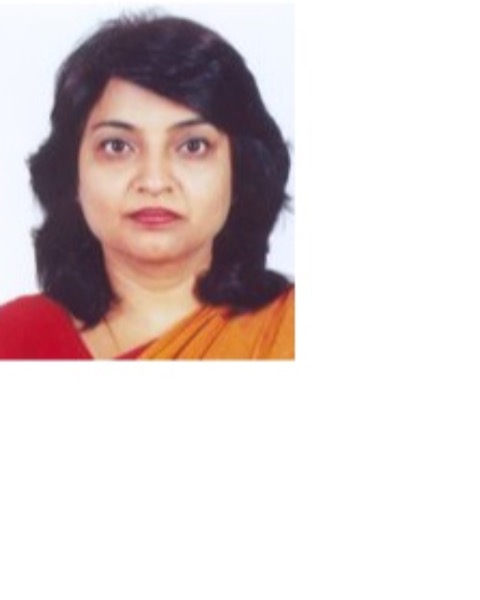IGNITE - 7 minutes for each presentation
Leadership, Mentoring, and Training the Next Workforce
F1. IGNITE: Empowering Future Leaders: Mentorship, Training, and Networking for Public Health Students and Professionals
F1.03 - IGNITE: Training, mentoring and networking needs of female public health leaders at apex positions in India
Thursday, April 17, 2025
3:14 PM - 3:21 PM PST
Location: Main Stage (International Ballroom), 2nd Floor
Area of Responsibility: Area VII: Leadership and Management
Subcompetencies: 4.4.5 Identify implications for practice., 5.2.4 Educate stakeholders on the health issue and the proposed policy, system, or environmental change.
Subcompetencies: 4.4.5 Identify implications for practice., 5.2.4 Educate stakeholders on the health issue and the proposed policy, system, or environmental change.

Sangeeta G. Saxena, MD DrPH ALM(Management) (she/her/hers)
Assistant Professor
Coastal Carolina University
Conway, South Carolina, United States
Presenter(s)
Learning Objectives:
At the end of this session, participants will be able to:
- Become aware of the inequitable representation of women public health leaders among the top echelons in India and recognize the barriers they face.
- Identify the facilitatory factors these women leaders leverage based on their experiential learning.
- Articulate the remedial measures they suggest for an equitable gender distribution among leadership in the public health workforce in India.
- Discover the solutions these leaders propose which would remove these challenges, thereby facilitating for a more equitable workforce at the highest positions in the public health sector in India
Detailed abstract description: Women constitute the majority of the health care workforce but hold less than a fifth of executive positions. We conducted this study as an initial step towards identifying the unmet needs of the scarce women physicians who have made the decision to hold leadership positions in the public health sector in India, with a view to identifying the factors that could rectify the gender imbalance. It is a qualitative, phenomenological study of 14 female physicians in leadership positions in India’s federal and state Ministries of Health (MOH) who were purposively sampled and interviewed online in 2020 using a validated semi-structured questionnaire. The study was conducted at Penn State University and has IRB approval. Two researchers independently coded the transcripts, using NVivo software and iteratively identified emerging themes.
We found women public health practitioners to be authentic leaders who practice team and situational leadership. They face cultural, organizational, and structural barriers in the Indian society. Familial expectations and culturally imbibed, internalized responsibility to prioritize family over professional advancement holds them back. The rigid bureaucracy makes their workplaces non-inclusive. Micro-aggressions and implicit gender bias abound. A formalized training mechanism and a performance-based reward system are absent. The participants are identified the need for institutionalized training for the public health workforce to upgrade their technical and soft skills, and for their male counterparts to be taught to appreciate and respect their female colleagues. They voiced a lacuna of mentors and the creation of networking opportunities. have mentors and advise their younger generation to network, find mentors, and change the mindset of society.
The enabling factors are family support, domestic help, incidental learning, being emotionally intelligent and passion for their work. During the Covid-19 pandemic, they adapted to the challenges with increased empathy, resilience, and innovation.
The findings underscore the critical role equitable working conditions play in retaining a motivated, diverse healthcare workforce in the public sector. Removing gender bias and microaggressions is an ethical and moral imperative and will enhance health-seeking behavior, contributing to overall public health resilience.

